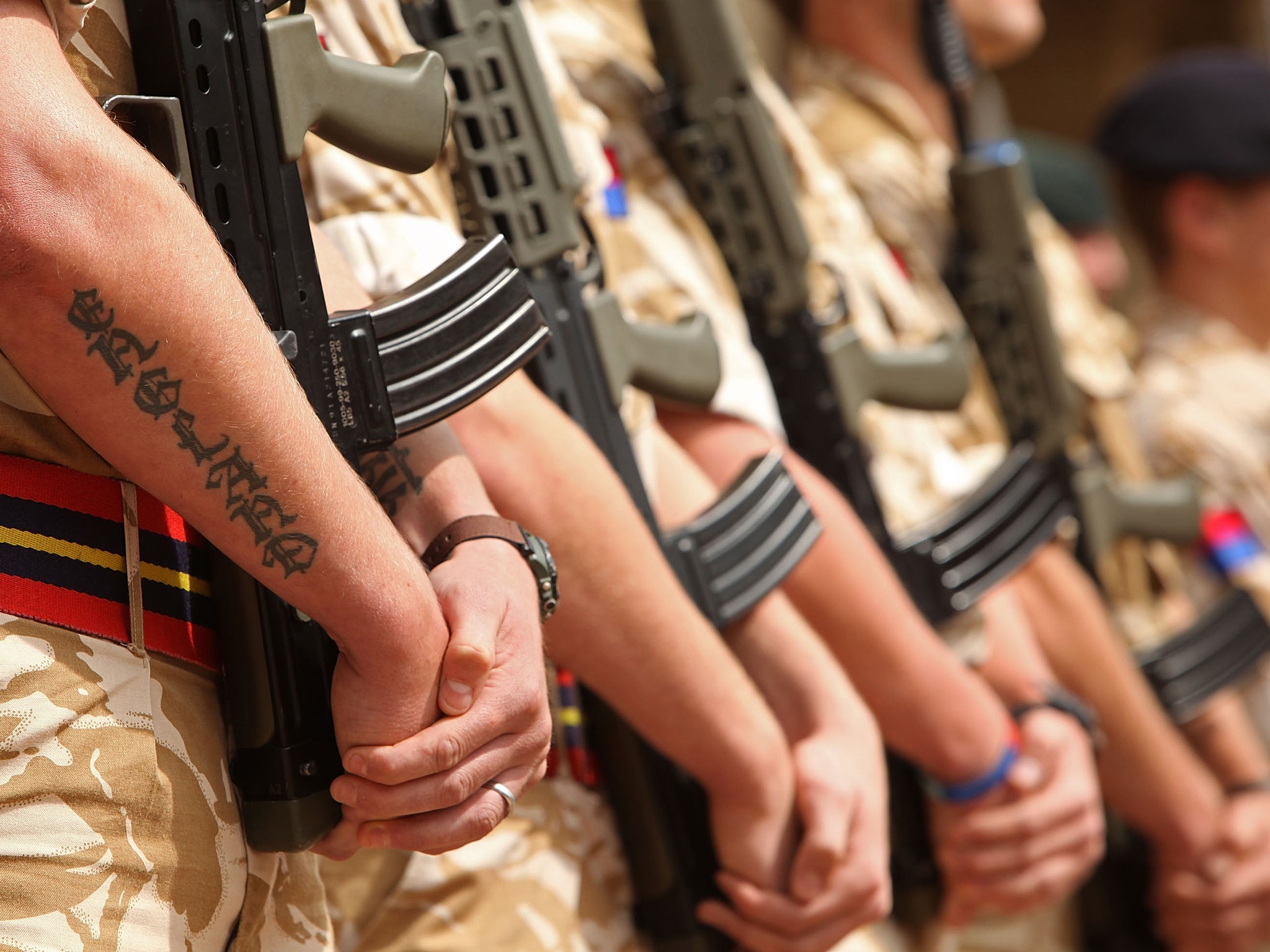Ex-Defence chiefs warn of terror threat after MoD confirms 5,300 army jobs will be sacrificed in 2014
Soldiers in Afghanistan face sack on return

Your support helps us to tell the story
From reproductive rights to climate change to Big Tech, The Independent is on the ground when the story is developing. Whether it's investigating the financials of Elon Musk's pro-Trump PAC or producing our latest documentary, 'The A Word', which shines a light on the American women fighting for reproductive rights, we know how important it is to parse out the facts from the messaging.
At such a critical moment in US history, we need reporters on the ground. Your donation allows us to keep sending journalists to speak to both sides of the story.
The Independent is trusted by Americans across the entire political spectrum. And unlike many other quality news outlets, we choose not to lock Americans out of our reporting and analysis with paywalls. We believe quality journalism should be available to everyone, paid for by those who can afford it.
Your support makes all the difference.A plea has been made tonight to ring-fence defence spending from further Government cuts in order to deal with a “generational” terrorist threat from Islamic extremists around the world.
The Former First Sea Lord West warned ministers that their “rhetoric” over defence spending wasn’t “backed up by funds” as it emerged that thousands of soldiers serving in Afghanistan this year face losing their jobs in a third round of redundancies in 2014.
Today the Government announced that 5,300 army personnel are to be handed their notice in June as the Ministry of Defence tries to reduce the number of full-time soldiers to 82,000.
Any soldier preparing for, deployed on, or recovering from operations on 18 June will not be made redundant against their wishes this time – but the MoD said those exempt would not be protected from a further tranche of job losses next year, which will also affect medics and dentists in the Royal Navy and RAF. The redundancies arise from the 2010 Strategic Defence and Security Review designed to cut the size of the regular armed forces and make-up the numbers by using more Territorials.
The Chief of the General Staff General Sir Peter Wall said he recognised the “unwelcome uncertainty and pressure” for those affected but added the cuts were unavoidable.
“For some it may present an opportunity; for others it will curtail their service prematurely,” he said. “Our aim now is to apply the process as fairly as possible and to prepare to support those individuals who are selected as they and their families transition to civilian life.”
But former Defence chiefs criticised the decision at a time when the armed forces are facing multiple challenges around the world. “If you wish to intervene, even in a small way militarily, [in a country] then you must adequately fund the military to be able to do it,” said Lord West.
“And if you think back, we’ve had the Libya operation, very shortly after the Defence and Security Review. [David Cameron] is now talking about what’s happening in Mali and I have real concerns that actually the rhetoric and the strutting of the world stage by some of our prime ministers isn’t backed up by sufficient funds for the military.”
Labour also urged the Government to revisit its defence review, which it said had been “exposed” by conflict and incidents in Mali, Algeria and Libya.
“One certainty is the heroes of today could be sacked tomorrow,” said shadow Defence Secretary Jim Murphy.
“The Prime Minister rightly spoke of the urgency of the Islamist terror threat to the UK from North Africa but, in a ‘carry on regardless’ strategy, serious skills in the Army are being lost.
“Not enough is being done to rebalance our forces towards new threats and a changed role.”
But Defence Secretary Philip Hammond said: “Unfortunately redundancies are unavoidable due to the size of the defence deficit that this Government inherited.
“We will have smaller armed forces but they will be properly equipped and well funded, unlike before. These redundancies will not affect current operations in Afghanistan, where our armed forces continue to fight so bravely on this country’s behalf.”
Join our commenting forum
Join thought-provoking conversations, follow other Independent readers and see their replies
Comments